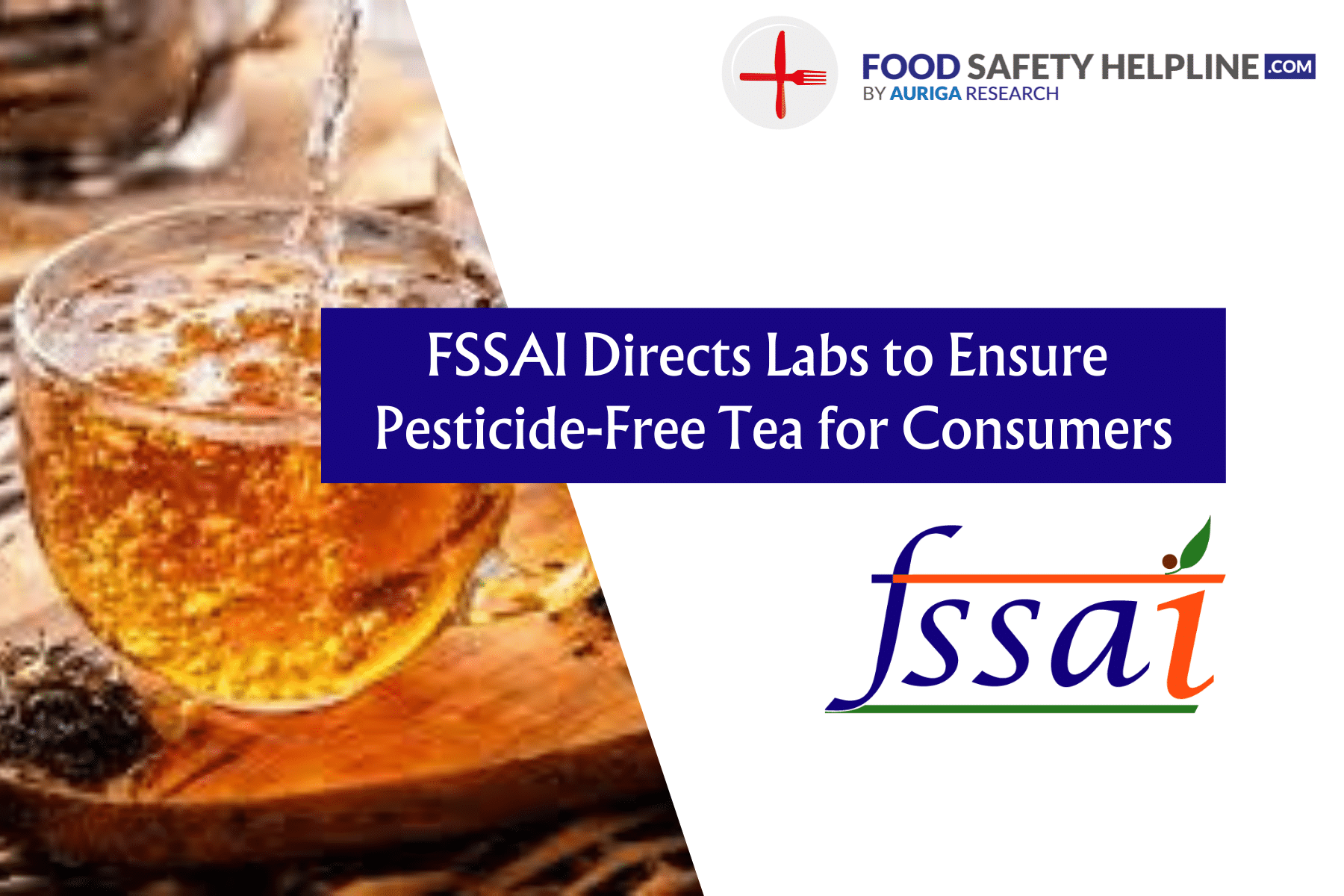In a significant move to uphold food safety standards in India, the Food Safety and Standards Authority of India (FSSAI) has issued a directive to all recognized laboratories. This directive, exercised under the Food Safety and Standards Act, 2006, and the FSS (Contaminants, Toxins, and Residues) Regulations, 2011, aims to ensure the safety of food products, with a specific focus on Pesticide-Free Tea.

Background:
On March 19, 2018, FSSAI implemented the first Amendment Regulations, 2018, prohibiting the use of 20 pesticides as per the Insecticides Act, of 1968. This step was taken to safeguard consumers from potential harmful effects associated with these pesticides in food products.
Directive to Laboratories:
After extensive consultations with stakeholders, FSSAI is now directing all notified laboratories under sections 43 (1) and 43 (2) of the Food Safety and Standards Act, 2006. The directive mandates these laboratories to conduct testing for the 20 banned pesticides (listed in Annexure-1) in addition to evaluating all pesticides specified for tea under the FSS (Contaminants, Toxins and Residues) regulations, 2011.
Ensuring Pesticide-Free Tea:
The comprehensive testing protocol is geared towards creating a safer tea market for consumers. By expanding the testing criteria to include the banned pesticides, FSSAI aims to fortify the monitoring of tea quality, assuring consumers of a healthier and safer tea-drinking experience.
Conclusion:
This directive, approved by the competent authority, reinforces FSSAI’s commitment to maintaining rigorous food safety standards. It reflects a proactive approach to address emerging concerns, underscoring the authority’s dedication to protecting the health and well-being of the Indian population. The collaboration with notified laboratories signifies a collective effort to ensure that tea products meet the highest safety benchmarks, providing consumers with confidence in the products they consume.
Riya Patel says
Ensuring pesticide-free tea is a significant step by FSSAI towards consumer safety and health. It reflects a proactive approach in regulating food standards, prioritizing the well-being of consumers.